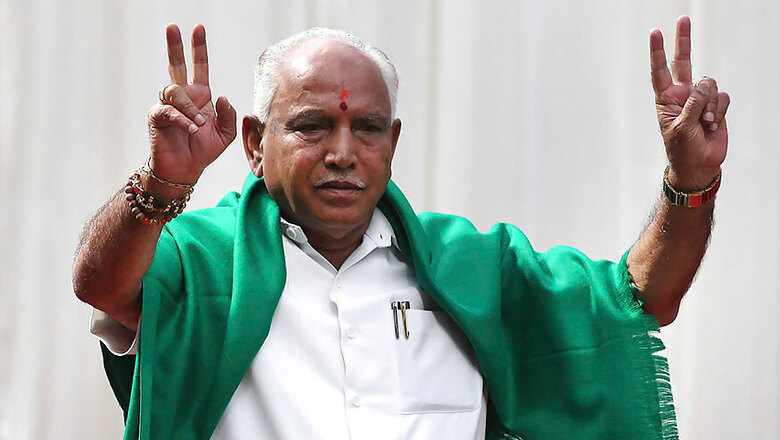
views
New Delhi: The letter of support given by BS Yeddyurappa to the Karnataka Governor while staking claim to form the government in the state now holds the key to the fate of the warring political parties.
The Supreme Court has called upon the Attorney General to adduce the letter before it on Friday so that the future course of action can be determined.
The importance this letter holds has its edifice in adjudicating the 'satisfaction' of Governor Vajubhai Vala.
The three-judge bench, headed by Justice AK Sikri, has adequately indicated that it would want to see why Vala chose Yeddyurappa over the Congress-JDS alliance that apparently had the majority in the house.
In a hung House, the arithmetic plays the most significant role and thus what convinced the Governor to call upon the political party with less number of seats becomes a matter of curiosity and, in law, a matter of judicial review.
It is not the Governor, but his actions and the manner in which he exercise the discretion vested in him are at the epicentre of this judicial scrutiny.
The moot question is whether the Governor had a sound basis and precedents to support his decision to invite the single largest party instead of a leader claiming majority with post-poll alliance to form the government.
The letter, handed over by Yeddyurappa to the Governor, will have to answer this legal and political conundrum.
Was the Governor's decision, an “informed one and on the sound basis?” How did Yeddyurappa's letter provide the reasons to reach this decision? Was the Governor's decision in line with the constitutional norms and the judicial precedents? These are the questions which are going to dominate the arguments in the Court today.
If the Court thinks that the Governor's decision is found to be untenable, the Supreme Court is competent to quash the decision and ask the Governor to take a call afresh on who should be called to form the government.
In Arunachal Pradesh judgment, the court restored the old government by setting aside the presidential proclamation and thus there is no reason why it cannot undo the Governor's decision to call upon Yeddyurappa.
The second point in contention would be the 15-day timeframe which is apparently a long rope for any party with less number of MLAs to prove majority on the floor of the House.
In several cases in the past, the Court has ruled that floor test is the real test to prove majority. It has, however, categorically held that there cannot be too long a timeframe for proving the majority.
In the past, the Court in similar situations has given 48-72 hours to prove the majority and this looks like a very alive scenario in the current situation.
The Supreme Court has never dismissed a government after being sworn in, and it has instead directed for the floor test to prove majority in the House, with the underlying principles that only the party capable of providing a stable government should be at the helm in the interest of the people.




















Comments
0 comment